Bangsamoro Unveiled
“Bangsamoro Unveiled: Triumphs Tribulations and Transformations in the Muslim Autonomous Region of the Philippines” is an in-depth exploration of the complex history and evolving socio-political landscape of the Bangsamoro region. The book chronicles the region’s journey from its precolonial roots to the contemporary challenges it faces, including various phases of colonial rule, postcolonial struggles, and the emergence of radical movements. It delves into the multifaceted aspects of Bangsamoro’s identity, covering topics such as resistance, governance, gender and society, and interfaith dialogue, ultimately painting a comprehensive picture of the region’s past, present, and future prospects.

“Bangsamoro Unveiled” provides a comprehensive and detailed examination of the Bangsamoro region in the Philippines, a region characterized by its distinct Muslim identity and a history marked by resistance, transformation, and triumph. Spanning 30 chapters, the book traces the region’s journey from its precolonial existence through various historical phases, each shaping its unique socio-political landscape.
The book begins by exploring the region’s precolonial era, highlighting the roots of resistance against foreign subjugation. It then navigates through the periods of Spanish and American colonial rule, delving into the profound impacts these had on the region’s socio-political and cultural dynamics. The narrative moves to the postcolonial struggles of the Bangsamoro people, focusing on their quest for identity and autonomy within the newly independent Philippines.
Significant attention is given to the emergence of key political and militant movements like the Moro National Liberation Front and the Moro Islamic Liberation Front, detailing their roles in shaping the region’s quest for self-determination. The book revisits pivotal events like the Jabidah Massacre and the rise of extremist groups, including Abu Sayyaf, which added complex layers to the ongoing conflict.
The latter chapters discuss the multifaceted challenges and opportunities in the Bangsamoro Autonomous Region, covering governance, gender roles, cultural identity, and interfaith relations. It also examines the influence of global jihadist movements and human rights issues, alongside grassroots movements and civil society’s role in peacebuilding.
“Bangsamoro Unveiled” goes beyond chronicling historical events, offering insights into the region’s economic challenges, educational prospects, and environmental concerns. It concludes with a forward-looking perspective, envisioning pathways to peace and a harmonious future for Bangsamoro. This book is a crucial resource for understanding the intricate dynamics of a region at the crossroads of conflict and peace, tradition and modernity.
Table of Contents
Chapter 1
Chapter 2
Chapter 3
Chapter 4
Chapter 5
Chapter 6
Chapter 7
Chapter 8
Chapter 9
Chapter 10
Chapter 11
Chapter 12
Chapter 13
Chapter 14
Chapter 15
Chapter 16
Chapter 17
Chapter 18
Chapter 19
Chapter 20
Chapter 21
Chapter 22
Chapter 23
Chapter 24
Chapter 25
Chapter 26
Chapter 27
Chapter 28
Chapter 29
Chapter 30
Q&A with the Author
Integration into local and global economies is highlighted in the ebook. How do you propose ensuring this integration is characterized by mechanisms that stimulate indigenous industries, generate sustainable livelihoods, and ensure equitable wealth distribution?
To ensure integration that benefits indigenous industries and ensures equitable wealth distribution, a multi-pronged approach is needed:
- Policy Frameworks: Establish policies that prioritize local industries in government procurement and incentivize foreign companies to partner with local businesses.
- Skill Development: Invest in vocational training tailored to local industries, enhancing the workforce’s ability to contribute meaningfully.
- Sustainable Practices: Encourage industries to adopt sustainable practices, ensuring long-term viability and environmental conservation.
- Fair Trade Agreements: Negotiate trade agreements that are favorable to local industries, protecting them from being overshadowed by multinational corporations.
Education is considered a pivotal component in the envisioned future. How can an inclusive and forward-looking educational system be structured to nurture critical thinking, foster cultural awareness, and develop socio-emotional skills within Bangsamoro?
A comprehensive educational system in Bangsamoro should:
- Integrate Cultural Studies: Include local history and cultural studies in the curriculum to foster cultural awareness.
- Emphasize Critical Thinking: Develop curricula that encourage questioning, analysis, and innovation rather than rote learning.
- Socio-Emotional Learning: Implement programs focusing on empathy, resilience, and community engagement.
- Technology Integration: Use technology to provide access to global knowledge while encouraging local context understanding.
The ebook also mentions the natural environment and the need for careful consideration. What specific strategies or policies do you propose to balance the economic potential of biodiversity and natural resources with the imperative of environmental preservation?
Key strategies include:
- Sustainable Resource Management: Implement policies that ensure sustainable use of natural resources, like controlled logging and fishing quotas.
- Eco-Tourism: Develop eco-tourism, highlighting the region’s natural beauty while preserving it.
- Environmental Education: Educate the community about the importance of conservation and sustainable practices.
- Research and Innovation: Invest in research to develop environmentally friendly technologies and practices for industries.
Empowering marginalized sectors is highlighted. What actionable steps or policies do you recommend to ensure active participation of women, indigenous peoples, and the youth in socio-political processes and to provide equal access to opportunities?
To empower women, indigenous peoples, and the youth:
- Representation in Governance: Ensure these groups have representation in political and decision-making processes.
- Access to Education and Employment: Create scholarships and job programs targeting these groups.
- Community Leadership Programs: Develop leadership and skills training programs specifically for these sectors.
- Legal Protections: Strengthen laws against discrimination and for equal opportunities.
The resilient people of Bangsamoro are acknowledged as the true catalysts. Could you share specific stories or examples that exemplify the spirit, struggles, and dreams of the Bangsamoro people, and how these elements form the foundation for the future you envision?
- Entrepreneurial Ventures: Stories of individuals who have built successful businesses that contribute to the local economy.
- Cultural Preservation: Individuals or groups working tirelessly to preserve and promote Bangsamoro culture and traditions.
- Community Initiatives: Stories of communities coming together to overcome challenges such as natural disasters or economic hardship.
Interfaith dialogues are discussed as vital conduits. Can you elaborate on how these dialogues can be effectively implemented to build mutual understanding, dispel misconceptions, and create a society valuing religious plurality in Bangsamoro?
To foster a society that values religious plurality:
- Regular Interfaith Events: Organize events where leaders and members of different faiths can interact and discuss common issues.
- Educational Programs: Implement school and community programs that educate about different religions, promoting respect and understanding.
- Community Service Projects: Encourage joint community service projects involving members of different faiths, fostering cooperation and mutual respect.
Each of these elements, when thoughtfully implemented, can contribute to a future where the Bangsamoro region is not only integrated into the global economy but does so in a manner that is sustainable, inclusive, and respectful of its rich cultural heritage and diverse population.

